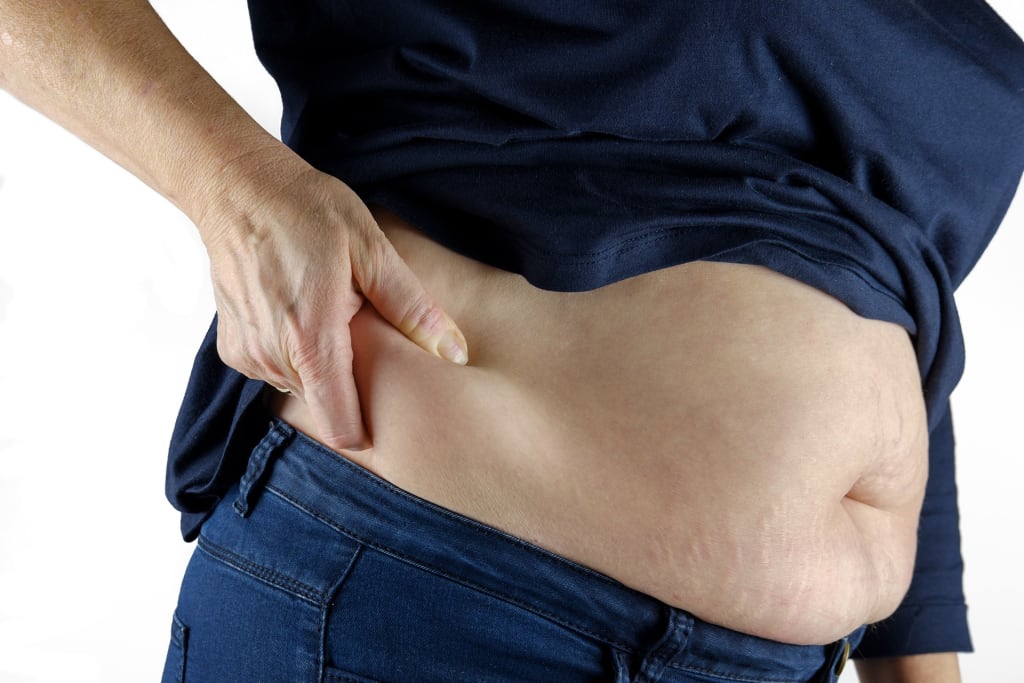
Coincidence? Absolutely not.
A person is considered obese if their body mass index (BMI) is more than 30, and obesity is a significant risk factor for high blood pressure. Your heart needs to work harder to circulate blood throughout your body when you are overweight or obese. However, all of that additional work strains your arteries. Your arteries then push back against this blood flow, raising your blood pressure.
Obesity and hypertension together constitute a major contributor to cardiovascular disease. If you often carry most of your weight in your belly, you're at very high risk.
Obesity also stresses your kidneys, which adds to the stress on your heart. The little blood arteries of your kidneys are harmed when you are overweight and have high blood pressure. Your kidneys work harder to filter your blood to eliminate waste and fluids as a result of the thickening and restriction of blood flow caused by vessel walls. Your heart needs to work significantly harder when your body can't get rid of extra fluid.
You can take efforts to lower your blood pressure, but because obesity is a complicating issue, you may also need to undertake a number of lifestyle adjustments in addition to taking antihypertensive drugs.
Medications

It's likely that your doctor may advise you to take blood pressure medication. Calcium channel blockers, ACE inhibitors, and low-dose diuretics are examples of frequently given blood pressure medications. Doctors may initially recommend ACE inhibitors and angiotensin II receptor blockers (ARBs) for obese individuals with high blood pressure. Some individuals could need the use of two or three different drugs.
There are other medications out there, but their potential adverse effects may make them less desirable. For instance, physicians may recommend beta blockers to treat high blood pressure under very particular circumstances. The quantity of oxygen your heart requires to function is decreased with beta blockers. They do this by decreasing the sensitivity of your heart to the hormone adrenaline, which is responsible for the "fight or flight" response and is generated by the adrenal gland. However, since beta blockers have been linked to weight gain in certain individuals, their usage is often restricted to specific circumstances, such as after a heart attack.
alterations in way of life
Even though you've certainly heard it before, losing weight is important if you have high blood pressure and are fat. Even a little amount of weight loss, according to the American Heart Association, may have a big impact on the health of your heart and your overall circulatory system.
Increasing your physical activity is one approach to do this; as a result, it's time to make a commitment to working out. You can get on track by engaging in at least 150 minutes of moderately vigorous exercise each week.
Another typical lifestyle suggestion for lowering blood pressure is to eat less salt. Salt causes your body to retain more fluid, which makes your heart work harder. The American Heart Association suggests that individuals limit their sodium consumption to 1500 mg per day, but your doctor could advise you to cut down on salt even more. So, take a close look at your food if you're aiming to reduce your blood pressure and lose weight. How much salt do you consume, and how much salt does your meal contain? So that you can determine how much salt is in your meals, carefully read the food labels. Another suggestion is to use spices instead of salt while cooking to add flavor without adding sodium.
Your doctor could also discuss changing your overall diet with you. The DASH diet, an eating strategy that prioritizes fruits, vegetables, whole grains, lean protein, and low- or non-fat dairy products, is often suggested to persons with high blood pressure. Along with being high in fiber, this diet is also rich in minerals like potassium, calcium, and magnesium that may help you decrease your blood pressure.






Comments
There are no comments for this story
Be the first to respond and start the conversation.